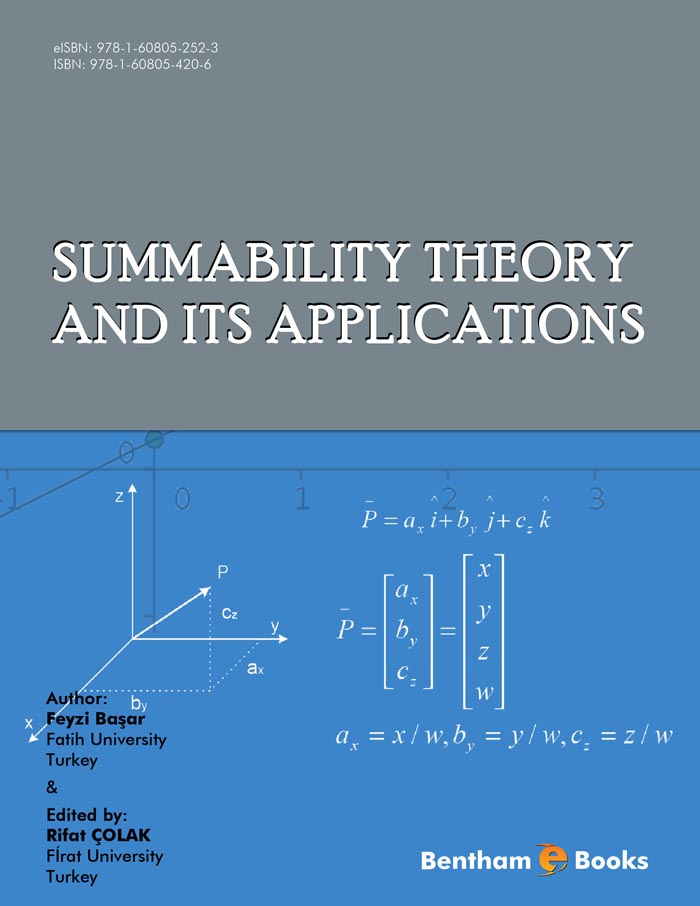Foreword
This book is actually timely and is intended for graduate and research students who have an interest in Sequence Spaces, Summability Methods and their Applications. The author of the book, Professor Feyzi Ba§ar is one of the renowned researchers in this field whose conscientiousness is reflected in the organization the contents of the book.
Professor Ba§ar has successfully tried to capture the spirit of this emerging and fascinating discipline in his book and presented the width and depth of the topics intelligently. His survey starting from the very basic definitions highlights the progress and developments of the subject in a well organized manner in order to motivate the readers.
This book covers many interesting studies on sequence spaces, e.g. topological properties, matrix transformations, matrix domains of triangles, spectrum, core and fuzzy study. So it should attracts researchers from various fields.
Other two books on this subject are also worth mentioning here: One by A. Wilansky [Summability through Functional Analysis, North-Holland Mathematics Studies 85, Amsterdam-New York-Oxford, 1984] and the other by J. Boos [Classical and Modern Methods in Summability, Oxford University Press Inc., New York, 2000]. But Chapters 5 8 of this book make it different from the other two books on this topic which cover the most recent work on Sequence Spaces. The presentation by Professor Ba§ar is very simple and straightforward.
This book also provides the basic tools to the researchers using directly or indirectly the notion of sequences and series and their convergence problems using modern summability methods. Professor Ba§ar has given emphasis on the use of soft analysis which makes the subject matter easily comprehensible. This book is a Bible of Modern Summability Methods.
Professor M. Mursaleen
Aligarh Muslim University
India

